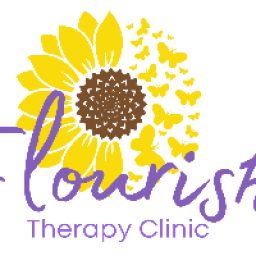Critical Illness – It can happen to anyone!
You're more likely to suffer from a Critical Illness than dying, during the term of your policy! We are here to help find the most affordable and suitable p...
You're more likely to suffer from a Critical Illness than dying, during the term of your policy! We are here to help find the most affordable and suitable p...
I’m one of the many women who left it too late in life to start thinking about having children. You have no idea until you decide to try and get pregnant how ea...
 Caritas Care
Caritas Care
For both Andi and I this is our second marriage. We had both unsuccessfully tried for a family with our previous partners, however when we got together we just...
 Caritas Care
Caritas Care
A recycling charity had to ‘break out’ of prison to survive lockdown. When prisons were forced to close their doors to the public, Recycling Lives Charity was...
 Recycling Lives
Recycling Lives
An active social media presence is one of the key marketing strategies businesses use for engaging and communicating with their customers in 2020. Although s...
 OwlTree Web Solutions Ltd
OwlTree Web Solutions Ltd
At any one point, an individual may be exposed to some kind of trauma which could have detrimental implications on their wellbeing. Long-term exposure to trauma...
 Flourish Therapy Clinic
Flourish Therapy Clinic
Virtual reality (or VR) is a computer-generated simulation of a 3D image. The user wears special electronic equipment such as a VR headset which generates images, sounds and other sensations that simulate a user’s presence in a virtual environment. The 3D environment creates a multi-sensory stimulation that allows interaction from the user.
Virtual reality is a new technology that has evolved very quickly. Despite its newness, VR is a well-studied subject and is proven to be very useful within the health and wellbeing sectors.
VR therapy can be used to treat many disorders, including anxiety disorders and has been shown to be very effective. It can significantly decrease anxiety symptoms and studies have shown that patients treated with VR therapy require 33% fewer sessions. Thus, a patient’s overall process and recovery time could be much quicker when using virtual reality therapy.
How can Virtual Reality Therapy help to treat Anxiety Disorders?
Anxiety disorder is a chronic condition characterised by an excessive and persistent sense of apprehension, with physical symptoms such as sweating, palpitations, and feelings of stress.
Cognitive therapies are often used in virtual reality therapy for generalised anxiety disorder. When treating anxiety disorders, VR technology often replicates real-lifescenarios that cause the patient anxiety. These scenarios generate thoughts, reactions and emotions similar to those caused by the real action.
By ‘practicing’ the situation, the patient becomes more accustomed to it. This is the ‘Law of Habituation’ – the more you practice, the less fear you feel. Using VR, the patient can gradually face challenging or problematic situations and eventually overcome this anxiety and regain confidence.
For example, patients with fear or anxiety linked with driving a car can be treated with VR exposure therapy. Using the VR technology, they can experience driving a car, but in a controlled and simulated way. This can help the patient become accustomed to the feelings and reactions associated with driving, without actually being in a car or on the road. They can practice using this technology until they become comfortable enough to do the activity in situ.
There are many benefits of using VR therapy. First of all, the therapy is done in a controlled environment, which is less intrusive than other forms of therapy. The patient has more privacy and they can feel more comfortable during their treatment.
The technology also allows the therapist to customise situations to the specific patient and VR environments can be adapted to suit different people’s needs, making it versatile. The technology can include difficult to access scenarios (e.g. aeroplane simulation to treat a fear of flying). This makes things much simpler and also reduces costs.
Finally, VR therapy can cause an acceleration of the therapeutic processes. Many patients notice their improvement faster and thus, have more efficient solutions to their problems.
Breathe Therapies uses the Psious technology, providing relaxation and cognitive restructuring techniques, helping the patient to eliminate and modify negative thoughts. The treatment incorporates gradual exposures to the source of anxiety through the technology and intercalates exposure environments to provide our patients with the best well-rounded treatment.
The technology allows the therapist to see what the patient is experiencing – i.e. what they are looking at or not looking at and heat maps also show where the patient spends the most time looking. Physiological sensors are also used to take measurements. This allows the therapist to see how the patient’s reaction evolves over time from session to session and also allows them to see what causes the most anxiety for the patient. The therapist can then use this information to monitor the patient and alter the treatment based on what causes the patient the most anxiety.
Virtual reality therapy can be a very good resource for treating anxiety disorders. It reproduces real-life scenarios and can adapt to treat the individual patient, allowing the patient, along with their therapist, to evaluate and manage their anxieties in a safe environment. It is important to note that while VR therapy is a useful tool in treatment for anxiety disorders, it is used within a therapy programme specific to the patient, which usually involves other methods such as psychotherapy sessions.


Navigation Way, Ashton-on-Ribble, Preston, Lancashire, PR2 2YP
01772 915735
View detailsJoin Our Adoption Information EventAre you considering adoption, or just exploring your options? Our online Adoption Information Events are the perfect place to...
 Caritas Care
Caritas Care
Better Networking Rossendale – Fortnightly Breakfast MeetingsAt the heart of our hometown, the Better Networking Rossendale Hub brings together local business o...
 Better Networking Hub Ltd
Better Networking Hub Ltd
Networking, GB Update and New ConnectionsAs our share platforms have continued to grow, so too have our online meet ups! Join us for our next fortnightly meet...
 GB Shared
GB Shared
Fully Funded Retail Support ProgrammeThanks to a brand new, custom made programme for retailers, ‘Retail Renaissance’ will help transform your retail business w...
 North & Western Lancashire Chamber of Commerce
North & Western Lancashire Chamber of Commerce
It’s Caritas Care Tea Party time!We’re thrilled to invite you to our annual Caritas Care Tea Party at Plungington Community Centre. It’s the perfect excuse to e...
 Caritas Care
Caritas Care
Better Networking Accrington – Monthly Breakfast MeetingsJoin us in the heart of Accrington for our monthly Better Networking breakfast meetings – where local b...
 Better Networking Hub Ltd
Better Networking Hub Ltd